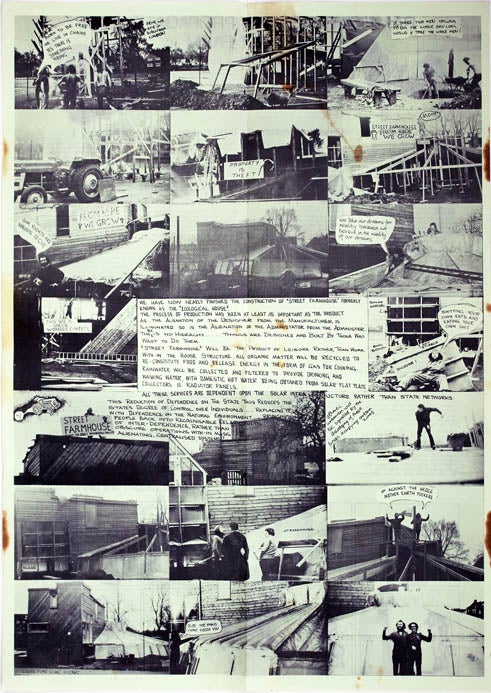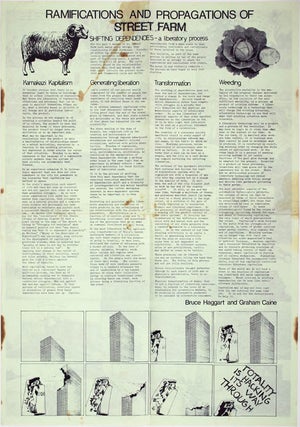115.
An original bulletin issued by the experimental architecture collective Street Farm on their ecological Street Farmhouse project in Eltham, south London. No place: no date (c. 1972).
Broadsheet printed on both sides, folded twice, as issued (59x42cm., unfolded). One side prints a series of anti-capitalist texts, "Ramifications and Propagations of Street Farm", and a cartoon, "Totality is Hacking its Way Through"; the other side prints a short text on Street Farmhouse and a number of photographs showing its construction, most featuring Situationist-inspired slogans and/or Graham Caine and Bruce Haggart, the two members of the eco-anarchist collective who designed and constructed it.
Street Farmhouse, dubbed by the press as "the first intentionally constructed ecological house", was built in 1972 from materials found in the streets and featured an integrated system that converted human waste to methane for cooking and included solar panels and hydroponic gardens. It received widespread media coverage, including from The Observer, and featured in Oz magazine (item #116) and a BBC2 documentary broadcast in June 1973. The house was not popular with the neighbours, however, who offered to help pull it down when it was demolished in 1975 after a request to extend the structure's temporary planning permission was refused.
The Street Farm collective (originally formed by AA students Peter Crump and Bruce Haggart) have since proved influential as renewable energy and concern for sustainability in architecture has became more mainstream, and although much less well known, their work is now regarded by architectural historians such as Lydia Kallipoliti alongside Stewart Brand's Whole Earth Catalog, Steve Baer's Zomeworks, John Todd's New Alchemy Institute, Sim Van der Ryn's Farallones Institute, as well as Colin Moorcraft’s 'Recycling' section in Architectural Design. Their magazine, Street Farmer, ran for only two issues between 1971 and 1972, and surviving documents are extremely rare.
A few patches of brown discolouration, o/w Very Good.
 Back to top
Back to top



